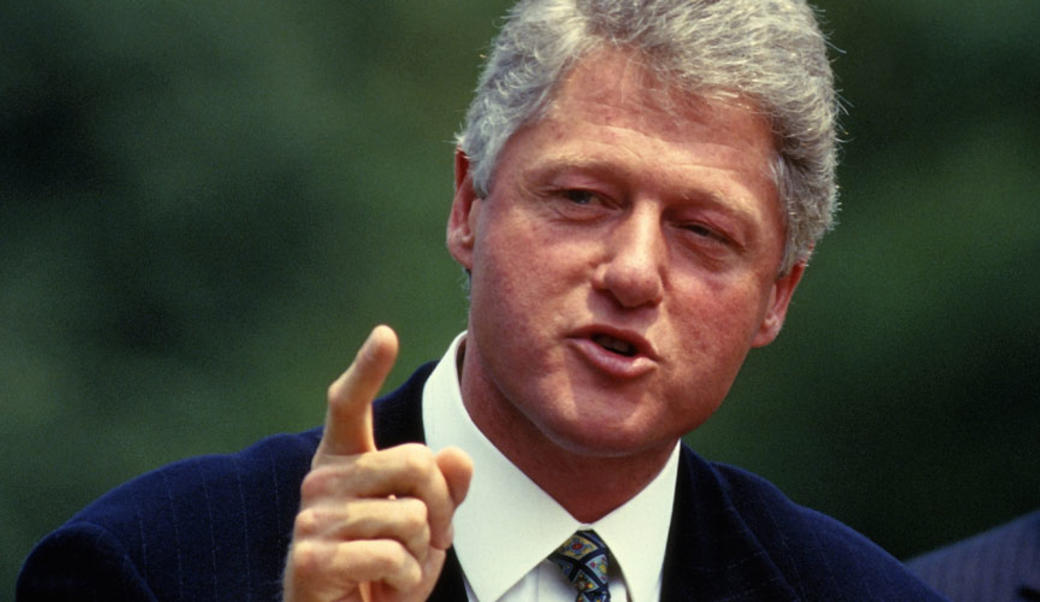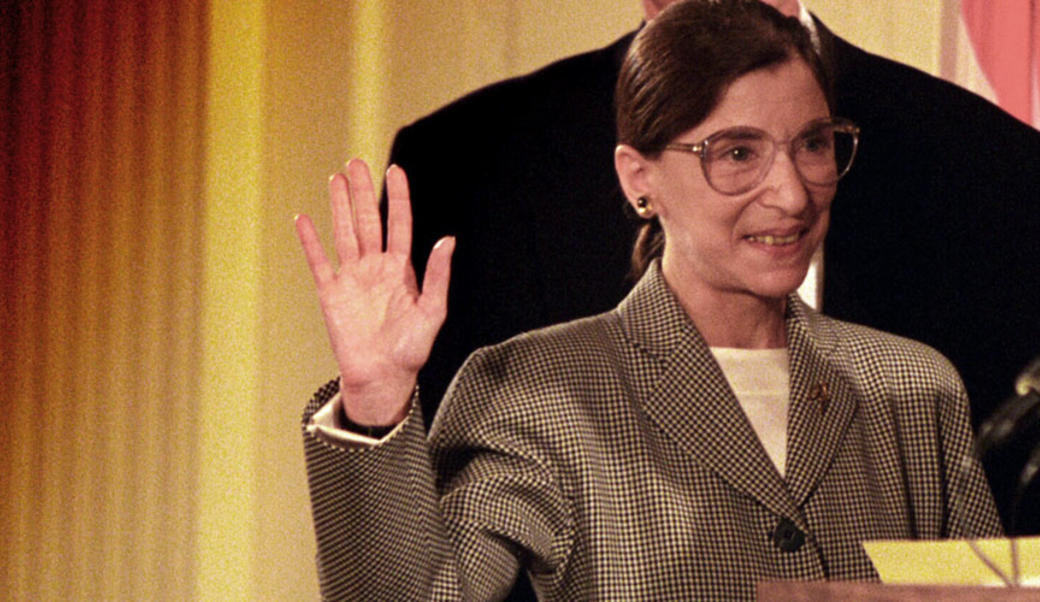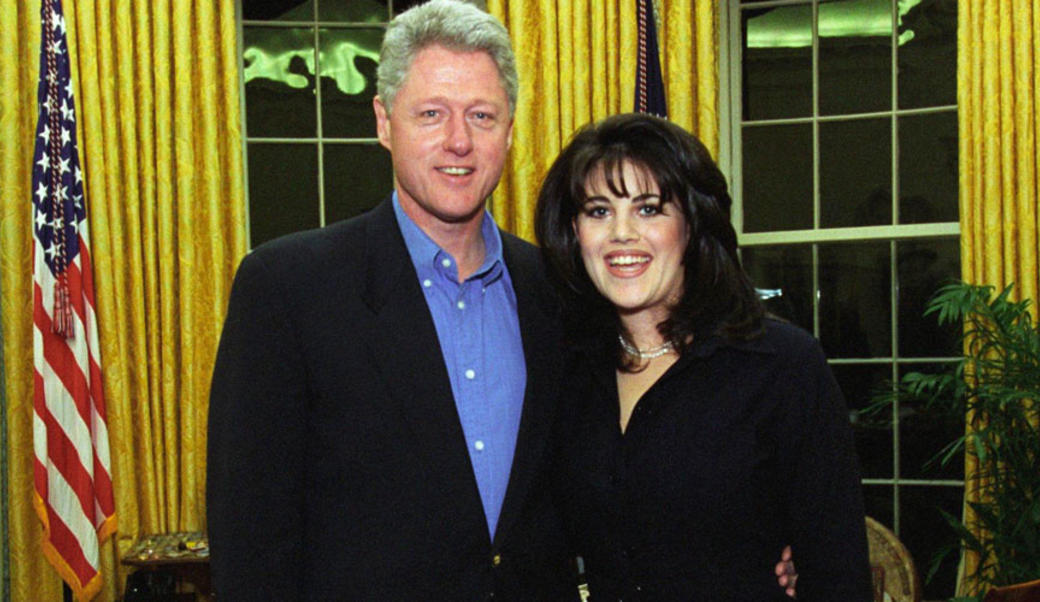Bill Clinton: Foreign Affairs
Bill Clinton came into office with relatively little experience in foreign affairs. The collapse of the Soviet Union and the uncertainties of the post-Cold War world produced a number of foreign policy crises which challenged Clinton's abilities as a statesman.
Missteps in Somalia, Rwanda, and Haiti
Weeks before Clinton took office, outgoing-President George H. W. Bush had sent American troops into Somalia, a country located in eastern Africa. What started out as a humanitarian mission to combat famine grew into a bloody military struggle, with the bodies of dead American soldiers dragged through the streets of the Somalian capital of Mogadishu in October 1993. Public support for the American mission waned, and Clinton announced a full withdrawal of U.S. forces, which took place in March 1994; United Nations (UN) peacekeeping troops remained in the country until the spring of 1995. The intervention ultimately accomplished little in Somalia: warlords remained in control, and no functioning government was restored in the country after the United States and the United Nations left. The failure of American troops to be properly equipped for the mission led ultimately to the resignation of Secretary of Defense Les Aspin and created the impression of a President ill-prepared for foreign affairs.
In April 1994, a vast killing spree broke out in Rwanda, a nation located in central Africa. An estimated 800,000 Tutsi and their defenders were murdered in a government-sponsored genocide. With the failure in Somalia still very much in the minds of American policymakers, neither the United States nor the United Nations moved aggressively to stop the slaughter. Both Clinton and the world community were criticized for not acting quickly and decisively to stop the violent deaths of Rwandans. In 1998, the Clintons embarked on an extensive six-nation tour of Africa, during which the President stopped briefly in Rwanda to meet with survivors of the civil war and to issue an apology for actions not taken.In Haiti, following Clinton's failed October 1993 attempt to oust Hatian strong man Raoul Cédras, former President Jimmy Carter stepped in to negotiate with the brutal military dictator for his removal from power. Cédras had overthrown the Caribbean nation's democratically elected president, Jean-Bertrand Aristide, in a 1991 coup. Accompanied by retired General Colin Powell and Senator Sam Nunn (D-GA), Carter communicated Clinton's threat to invade unless the generals of the junta relinquished power. With American planes in the air, the generals buckled and agreed to leave. United State forces were sent in to make certain that the agreement was enforced, but they were eventually withdrawn. The democratic institutions of this impoverished nation remain fragile and endangered.
Doctrine of Enlargement and Policy Successes
Notwithstanding these early difficulties, Clinton knew that the success of his presidency required a cohesive foreign policy. Trained as a student at the Georgetown School of Foreign Service, Clinton eventually focused on the creation of a new approach to international affairs, a policy his advisers called the "doctrine of enlargement." This doctrine, based on the idea of expanding the community of market democracies around the world, embraced free trade, multilateral peacekeeping efforts and international alliances, and a commitment to intervene in world crisis situations when practical (i.e., with little risk and low cost in U.S. lives) and morally defensible. The policy promoted an activist role for America and was designed to extend and protect basic human and civil rights insofar as it was within the power of the United States to successfully achieve those goals without undermining national security or depleting national resources. In Clinton's mind, the United States must continue its role as the principal leader of the world in promoting human dignity and democracy, with the understanding that it must never act in isolation or overextend its reach.
The Clinton administration achieved some notable accomplishments in foreign affairs. Russia was successfully persuaded to withdraw troops from the Baltic Republics of Estonia and Latvia in 1994. It also pushed through Congress two new massive trade agreements: NAFTA in 1993 and a revision of General Agreement on Tariffs and Trade (GATT) in 1994. Administration initiatives also staved off an impending economic collapse of Mexico in 1995 and helped produce remedies in similar crises with Asian markets two years hence. Furthermore, an administration emissary, former senator George Mitchell, brokered peace negotiations between the Republic of Ireland, the United Kingdom, and Sinn Fein ("Ourselves Alone"). In the Middle East, the administration facilitated negotiations between Israeli and Palestinian leaders. While these talks seemed to offer hope of a potential settlement, they broke off amid mutual recriminations and were soon followed by a renewed and more lethal round of fighting between Palestinians and Israelis.
Ethnic Wars in Europe
Major international challenges also came from the numerous civil and ethnic conflicts in the Balkans. After two years of keeping U.S. involvement in the conflict to a minimum, Clinton was eventually moved by Serbian atrocities against Bosnian civilians. The administration pushed NATO (North Atlantic Treaty Organization) to begin bombing Bosnian Serb positions. Eventually, that use of force, in tandem with diplomatic efforts led by Assistant Secretary of State for European Affairs Richard Holbrooke, brought the three warring parties—Croats, Serbs and Bosnian Muslims—to the bargaining table. The resulting Dayton Peace Accords ended the fighting. Clinton sent a peacekeeping force of 20,000 American troops (part of a larger NATO deployment) into the region to enforce a cease-fire that was to be followed by free elections in September 1996. American and NATO troops enforced an uneasy settlement that stabilized war-torn Bosnia with no American casualties.
In 1999, Clinton moved with NATO to begin a massive bombing campaign against the Serbian government to end its "ethnic cleansing" of Albanians in the Kosovo region. Specially trained forces from the Serb Interior Ministry, along with paramilitary forces that had been active in Bosnia years before, had created hundreds of thousands of refugees through the application of this policy; Serb forces also murdered thousands of ethnic Albanians. But the bombing worked and, with the help of Russian diplomacy, forced the Serbian government to withdraw from the region. With no American battle casualties during the fighting, U.S. troops joined British, French, and other NATO forces to occupy Kosovo as peacekeepers under an agreement worked out with Yugoslavia. The province remained nominally part of Yugoslavia, but the Kosovars had gained autonomy, and the possibility of eventual independence. Clinton's forceful stand in Bosnia and Kosovo enhanced his foreign policy resume.
Dealings with the Former Soviet Union
The former Soviet Union and its East European client states constituted yet another challenge for the Clinton administration. The President lobbied successfully for the inclusion of Poland, Hungary, and the Czech Republic into the North Atlantic Treaty Organization (NATO), indicating to Russia that neither nuclear weapons nor large numbers of troops would be placed in Eastern Europe. Nevertheless, some Russians regarded expansion as an aggressive step by NATO and the United States. Clinton also supported the besieged leadership of Russian president Boris Yeltsin as well as the funneling of billions of dollars in loans to Russia from the International Monetary Fund.In 1999, Clinton's support for financial aid to Russia came under attack in the face of mounting evidence that much of the borrowed money may have been stolen by an organized criminal syndicate which included members of Yeltsin's own family. However, supporters of Clinton's pro-Yeltsin policies credit his administration with an important achievement not easily measured in dollars or in the short run: the security of the Russian nuclear arsenal. Working through the provisions of the Nunn-Lugar Act, the administration provided extensive technical assistance and funding to the former Soviet states in the safeguarding of nuclear power plants and dismantling of nuclear weapons—an astounding achievement in view of the animosity that once existed between the United States and the Soviet Union. By the end of the Clinton presidency, the likelihood of a nuclear exchange between the superpowers was almost nonexistent.




